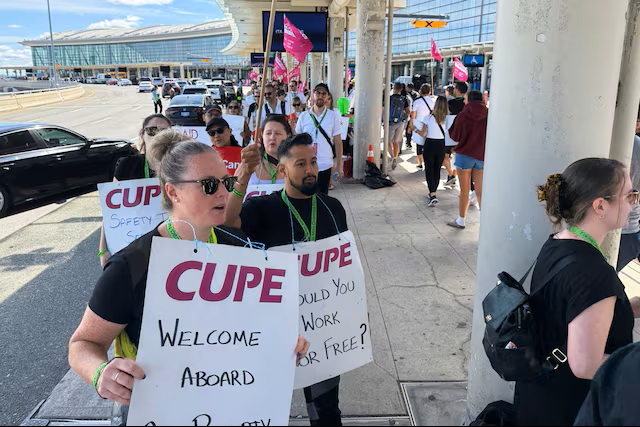Air Canada’s flight attendants have overwhelmingly rejected a tentative wage agreement, with 99.1% of voters opposing the deal. The rejection by members of the Canadian Union of Public Employees (CUPE) extends a bitter labor dispute that had previously led to a four-day strike in August, which stranded hundreds of thousands of passengers.
The initial strike ended on August 19th when negotiators reached the tentative deal, compelling the airline back to the bargaining table after it defied government efforts to end the work stoppage. However, the union’s membership has now soundly否决 that agreement, expressing deep dissatisfaction with the terms.
Despite the rejection, flights will continue to operate without disruption. Both the airline and the union are bound by an agreement that prohibits further legal strike action or a lockout. Consequently, the contentious wage portion of the deal will now be referred to a mediation process.
The core of the dispute highlights a growing demand among North American flight attendants to be paid for all hours worked, from check-in until they clock out. This challenge to the industry-standard compensation structure—which primarily pays crew only when the aircraft is in motion—is also being seen in negotiations at U.S. carriers like United Airlines. If mediation fails to produce a new agreement, the matter will proceed to binding arbitration.














